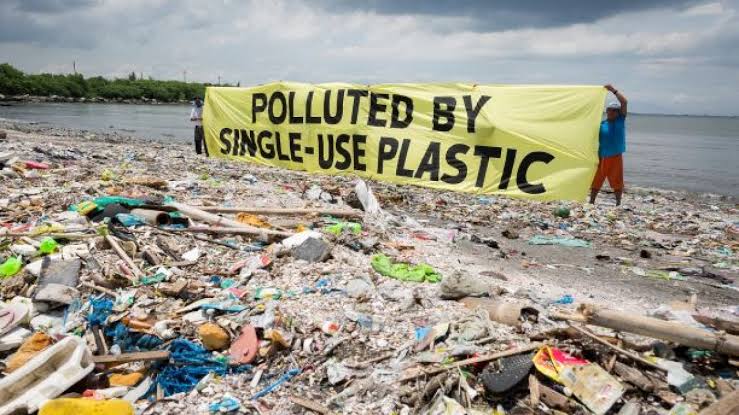New Delhi, September 2024 — In a concerning development, a report from the University of Leeds reveals that India has become the world’s largest plastic polluter, surpassing China and Nigeria. The report underscores that India is now responsible for emitting one-fifth of the world’s total plastic waste, positioning the nation at the forefront of global plastic pollution.
The study, which analyzed global plastic waste generation and disposal patterns over the past decade, highlights India’s rapid economic growth, industrial expansion, and increasing consumption habits as major factors contributing to its surge in plastic waste. Despite significant efforts toward sustainability, the country struggles to manage the sheer volume of waste it produces.
Key Findings from the University of Leeds Report
According to the report, India’s plastic waste emissions now account for 20% of the global total. This translates to millions of tons of plastic waste annually entering landfills, rivers, and oceans, posing a severe environmental crisis. The report indicates that while China’s plastic waste output has stabilized due to stringent regulations and waste management policies, India’s emissions have escalated dramatically, largely due to inefficient waste management systems and inadequate infrastructure.
In comparison, Nigeria, another significant polluter, contributes considerably less plastic waste, although it remains a critical concern in Africa. The report ranks India, China, and Nigeria as the top three global plastic polluters, with India emerging as the leader.
Urbanization and Consumption: The Driving Factors
India’s rapid urbanization has fueled the demand for single-use plastics, including packaging, consumer goods, and industrial materials. Cities like Mumbai, Delhi, and Bangalore are experiencing population booms, leading to increased consumption of plastic products without corresponding waste disposal systems.
“India’s plastic consumption has surged in recent years due to the growth of e-commerce, the packaging industry, and disposable goods,” said Dr. Sarah Thompson, the lead researcher behind the University of Leeds report. “Unfortunately, the waste management infrastructure has not kept pace, resulting in a large portion of this waste being improperly disposed of.”
Environmental Impact: Oceans, Wildlife, and Communities at Risk
The report further highlights the alarming impact of India’s plastic pollution on marine ecosystems. India’s rivers, particularly the Ganges and Yamuna, are among the most polluted globally, with tons of plastic waste flowing into the Indian Ocean each year. This not only endangers marine wildlife but also threatens coastal communities that depend on fishing and tourism for their livelihoods.
Plastic pollution has also been linked to severe public health concerns, with microplastics found in drinking water, food chains, and air. The long-term environmental degradation caused by plastic waste is expected to exacerbate climate change, affect biodiversity, and increase vulnerability to natural disasters in the region.
Government Response and Challenges
The Indian government has implemented several initiatives to curb plastic pollution, including a ban on single-use plastics in 2022. However, enforcement remains a challenge, especially in rural areas and informal sectors where plastic waste is not effectively regulated.
Prime Minister Narendra Modi’s administration has pledged to strengthen the country’s waste management systems and promote alternatives to plastic, such as biodegradable materials. The government is also working to raise awareness about the environmental consequences of plastic use and recycling.
Nevertheless, experts argue that more aggressive measures are required. “While the ban on single-use plastics is a step in the right direction, it’s not enough. India needs a comprehensive waste management overhaul, with better infrastructure, stricter enforcement, and incentives for industries to reduce plastic use,” said environmentalist Dr. Ravi Sharma.
International Repercussions
India’s position as the largest plastic polluter has sparked concerns in the international community. The country’s vast contribution to global plastic waste threatens international efforts to combat marine pollution, climate change, and environmental degradation.
As the world looks toward collaborative solutions to tackle the plastic crisis, India’s role becomes increasingly pivotal. The report emphasizes that without significant reforms, India’s plastic waste could continue to rise, exacerbating global environmental challenges and further straining ecosystems already on the brink.
The Road Ahead
The University of Leeds report concludes that India must prioritize scalable solutions, from boosting recycling rates and waste collection to incentivizing industries to adopt sustainable packaging alternatives. Collaboration between the government, private sector, and civil society will be key in reducing the country’s plastic footprint.
India’s plastic pollution crisis presents a stark reminder of the growing environmental challenges facing rapidly developing economies. As the world grapples with the plastic waste dilemma, India’s leadership in both pollution and potential solutions will shape the future of global sustainability efforts.
